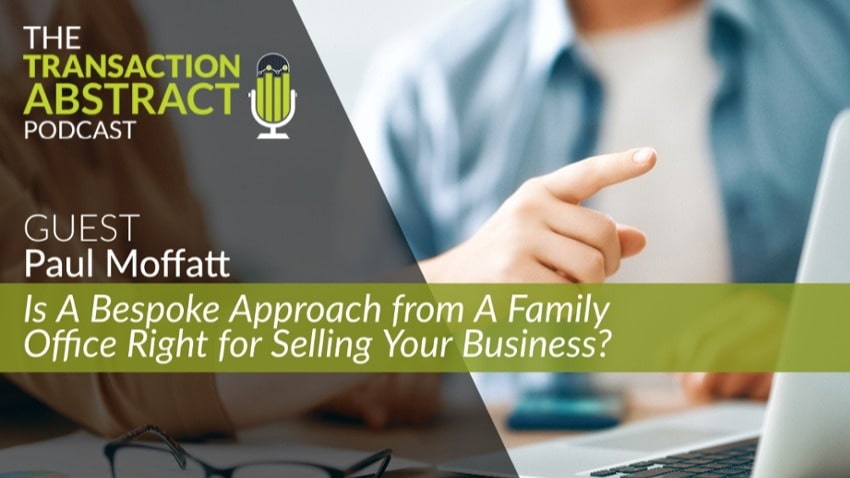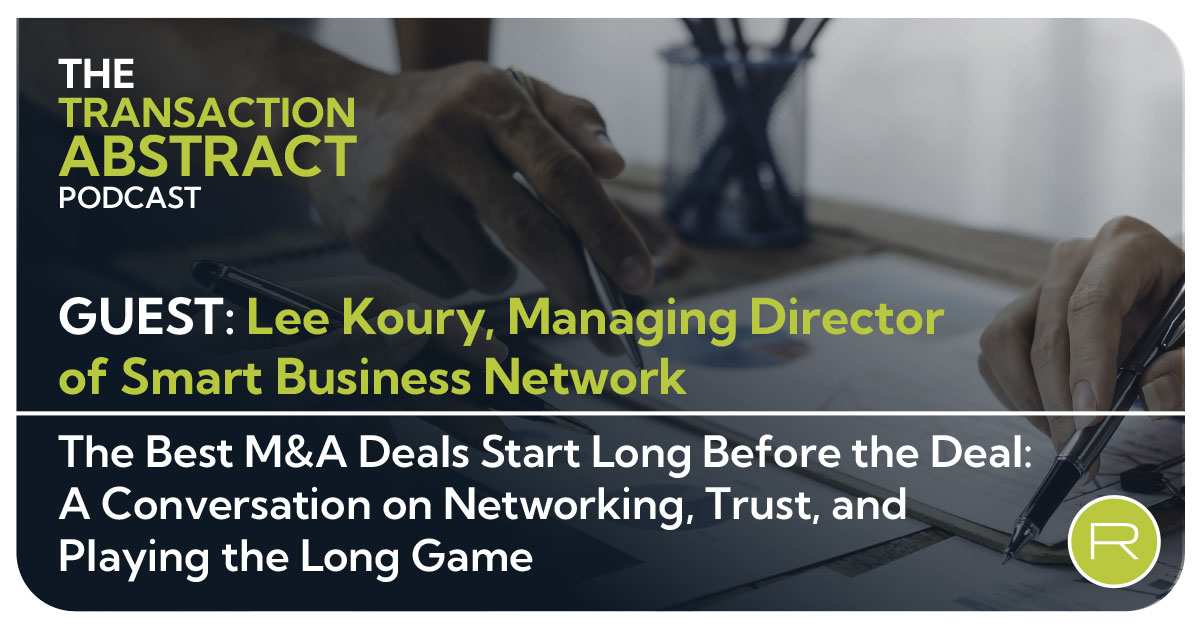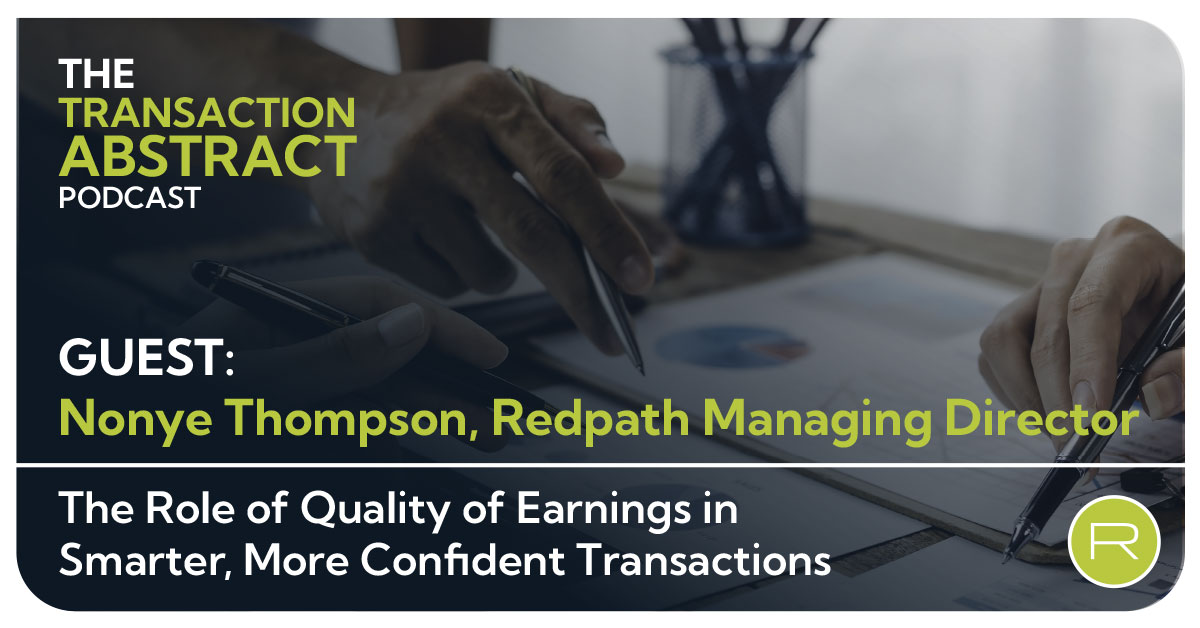You could sell your business to a private equity firm or a group of financial investors. Or, you might prefer a family office–an investment firm funded by and managed on behalf of a family trust. Family offices can differ considerably depending upon their goals and strategies. Often, they look at investments on a longer-term timeline. Encore One is a family office that takes what they call a bespoke approach to investing.
Joe Hellman recently spoke with Paul Moffatt, Director of Business Development at Encore One, LLC for an episode of The Transaction Abstract, to find out more about their bespoke approach and why it appeals to certain sellers.
Listen to this episode to hear the details on Encore One’s unique long-term approach to acquisitions.
Taking the Long View
Family offices might be a single family, multiple families represented by investment professionals, or a group of like-minded individual investors. Encore One is a family-owned investment holding company, “sister” to the Opus Group. Both firms are owned by the same family trust, which is headquartered here in the Twin Cities metro area.
As a small group, Encore One does not have teams out searching for deals and they are not looking for the same kind of deals other investors want. Since they are funded by trusts designed to last in perpetuity, they can focus on long-term investments–an attractive alternative for certain sellers. And that is exactly who they are looking for.
Paul Moffatt explains that a traditional private equity fund would go through the auction process because they need a certain velocity of deals in order to invest and earn the return over a predetermined amount of time. But this process does not really tell the whole story or provide the seller with the value proposition Encore One offers.
Encore One’s strength is providing long-term strategic support. “If we’re buying a $30 million company that has a nice 20-year track record,” Paul says, “we’re also thinking about the next 20 years. How does this get to $100 million?”
To do this, his firm uses a bespoke process–offering tailored services that are unique to each client but informed by the firm’s expertise and experience from other transactions.
Patient Capital
If the business being sold is growing and doing really well, they can continue to own it and enjoy that growth and capital appreciation long-term, adding equity strategically as needed.
The goal is not to operate the business directly, but to build on the history that made business great today and further support the professionalization of the business. Encore One takes an active position on the board, along with representation from management and maybe the seller or other shareholders who have rolled over some equity into the newly capitalized business.
They consider long-term opportunities for the company and also how they can support the management team. For example, Encore One brings the network and resources to manage the process with lenders, accountants, and attorneys so the individual teams can focus on their areas of expertise.
Honoring the Company’s Culture
We often hear from founders or senior managers who are concerned that the selling transaction will bring a significant change to the company’s culture. Paul believes that Encore One’s entrepreneurial roots give them a like-minded perspective that appeals to anxious sellers.
“We’re investing in what already works,” he says. The goal is not necessarily to make changes but to ensure continuity–the same management team delivering the same services to the same customers.
Encore One also brings philanthropy to the table, another way to honor the company’s culture. They invest 10% of the net income from each of their businesses into the family foundation. 1% of that net income then stays with the business itself. The employees and management decide for themselves which donations to charitable causes make sense for their business or their community.
How are Investments Selected?
While certain sellers like Encore One’s approach from an emotional perspective, they still want a full, fair, and maximum value for their business. After 20 years, the Encore One team has a good feel for potential investments that will be a good fit.
These businesses have provided a good product or service, and they have good teams in place, but they are in the lower middle market–what Paul calls “gritty operating businesses.”
“We understand when they barely have a compilation or they only close their books once a year for the IRS,” says Paul, “so they’re not going to have clean, audited financial statements with a lot of historical analysis and KPIs and budgets to compare the results to.”
That does not mean they skimp on due diligence. If their informal findings look good, the firm asks for exclusivity to continue and, with that, starts to dig in more. For that, they hire and work with outside transaction advisory services partners to look at historical trends and opportunities for future growth.
Paul notes that sellers also need good advisors–investment bankers, accountants, and attorneys that understand the value of their business and what an M&A transaction looks like–because there are a lot of questions to be answered beyond money and valuation.
That process can take weeks, and starting with less information can slow the transaction, but for Encore One the goal is not speed but creating a relationship and a high degree of trust.
Paul’s Advice for Founders Considering an Exit
- Give some thought to your ideal buyer–do you want more than a liquidity event?
- Do some wealth planning, so you know what you really need to get out of a transaction from an estate planning standpoint.
- Think about your own emotional needs–what you plan to do after the sale–as this is often a sticking point late in the process when reality hits.
With that, you will know what approach is best for selling your business.

 Redpath and Company
Redpath and Company




